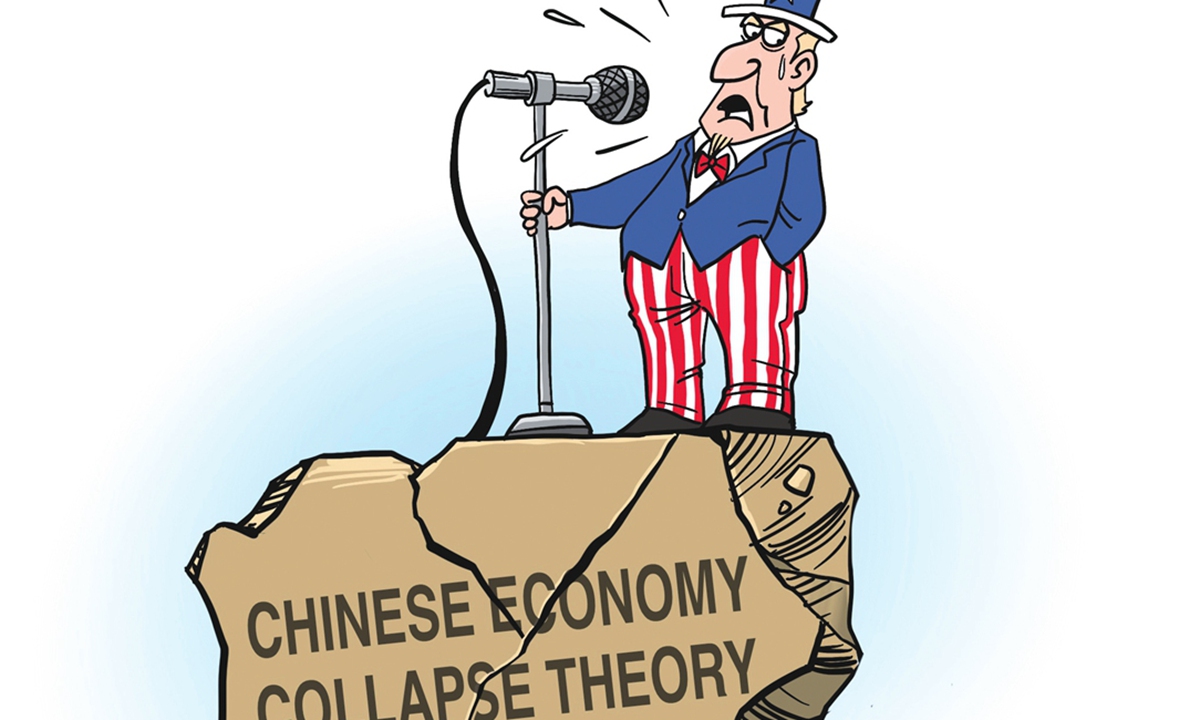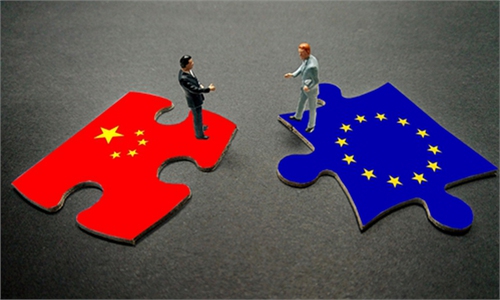
Illustration: Liu Rui/Global Times
There are two "Chinas" in the world: one is the real China, full of vitality and constantly progressing despite various difficulties and obstacles; the other is the "virtual China" in the Western media, always portrayed as a failure, a loser, plagued by crises, and on the verge of collapse.
The Foreign Policy magazine website ran two articles on Tuesday about China's "economic decline." This is not surprising as phrases like "China can't stop its decline" and "China's economy is off to a bad start" have become clichés frequently seen in various Western media. The West seems to play the role of a savior, pitying a declining great power that cannot be saved. Why do the Western media always depict China as being in an unstoppable decline?
A rising China is "terrifying" to the West. "They cannot accept a developing country with a political system, ideology, and skin color different from the West being able to play a role and occupy a corresponding position in international affairs comparable to the West," Li Haidong, a professor at the China Foreign Affairs University, told the Global Times. They cannot accept such a China, which is why they engage in geopolitical competition, economic decoupling, and ideological denigration of all the achievements China has made, Li added.
The West can never face up to China's success. Looking at the themes of Western media articles on China, whenever China makes progress in economics and diplomacy, the titles always end with "but at what cost." For Western countries, China's success represents a decline in Western's "leadership" and rules-making power. In essence, the West cannot tolerate the rise of non-Western countries. The West's suppression of China is an attempt to stifle non-Western models of human development. Behind this lie a strong hegemonic mentality and the pathological and paranoid way the West views non-Western developing countries.
What the West has always been worried about and feared is the emergence of an alternative development model in the world. When this model becomes the object of learning and imitation by developing countries, the wish of the West to dominate the world is already half shattered. And when developed Western countries themselves fall into an economic crisis, even Western populations themselves may be attracted to new alternative development models.
During this process, the Western media play a leading but disgraceful role. Just take a look at the covers and content of The Economist magazine about China's economic development, one can hardly hold an optimistic view of China. However, none of the scenarios depicted by this "authoritative" British magazine has actually occurred.
Western media completely deviate from the professional ethics of presenting facts to the public, Li said, adding that the Western ruling elites have realized that they can't compete with China through normal means.
It is not China's economy that cannot be saved, but the West's, which is desperate for self-rescue but has no strategy. They proclaim China's decline while warily accusing China of being a threat. This contradiction clearly reveals the West's panic, as they themselves are facing internal and external crises. The divisive tendencies highlighted by the US presidential election this year have become the top risk, said a recent report issued by Eurasia Group, a US-based global political risk research and consulting firm.
Post-pandemic, China's GDP increased by 5.2 percent in 2023, achieving the expected target. China is currently the main trading partner of over 140 countries and continues to innovate in key technologies such as artificial intelligence and quantum computing. China has far surpassed Western developed countries in new areas such as new energy, and its automobile exports have surpassed Japan and Germany to become the world's No.1. The list goes on. Western defamation contrasts starkly with China's rise. China's overall strength is constantly growing, showing the invalidity of Western narrative.

